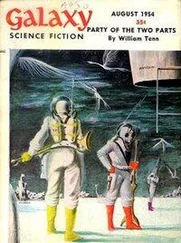“We carried out our orders. We met the deadlines.”
“The bosses, the Party. the Congress. ”
K-shev remains silent, however; he doesn’t justify himself to anyone. There’s something I like about the guy, something that excites me to a particularly strange, radioactive degree, especially at the moment when I bury my fingers in the milky-blue, fleshy-cloth combination of the pleated skirt and naked thighs of his daughter.
He revolves around the axis of his own unshakable foundation, built over the void. It’ll only take a bit more to convince me, just a bit more. Just some extra gesture, accidental, seemingly trivial, that will let me know that he is not simply a Party flunky, but divine. He doesn’t need to run from responsibility because he is in a completely different relationship to responsibility itself. He himself is the creator of responsibilities.
Strangely, his illness now seems at first glance like a failure, a tumble from the altar I was prepared to place him on. But perhaps this is only at first glance — for this reason I’m not rushing to pity him so easily; I’ve seen many falls. Could the illness be the final proof I need to deify him once and for all? A strange sort of god, ready to die even — from an illness no less, one we ourselves all feared becoming infected with. Is he capable of such an act purely and solely to win our faith?
There, there, my dear little Soviet comrade: don’t cry, don’t be sad, don’t change your surname, don’t be ashamed of your name. Take flowers to your daddy’s grave, even though only a blue suit with metal buttons is buried there. After the hydrogen-oxygen explosion at the reactor, fueled by uranium dioxide UO 2on a bed of zirconium, under the skeleton of niobium — nothing was left of the bodies.
“But we did everything just as we were supposed to”—only evaporated ghosts repeat these words now.
“We did everything correctly, following the established plan approved by the management!” Just as under socialism — we do and did everything correctly, yet life, the world, continues to collapse beneath our feet like a reactor that has entered a runaway state of nuclear meltdown. Is there any need to explain what those two great liberating words mean: chain reaction ?
A reaction that breaks chains. Indeed, freedom is equal in strength to the truth. But first the opposite had to happen.
And I had to come across his daughter, of course.
K-shev watches me from the framed black-and-white photograph. Only in the meaning of that gaze, in the subsections of the ideological tract can I search for the true foundations. The sick passion that firmly grips and envelops both our bodies — mine and his daughter’s . It changes from tenderness into exertion, from exertion into force, into tension to the point of pain: power.
At the end, as usual, the tempo should speed up, just a bit more and everything is over. The moment of the happy ending, the verge of that thirsting absurdity. But that is precisely the moment when I can throw a wrench in the spokes of natural progression, of desire: I slow the beating of my heart, the throbbing of blood in the basement of my organism, the boiling of seething lava. All internal muscles push and jerk, hopelessly trying to overcome the built-up ballast — but I resist, working against them.
I’m pretty vile, that’s clear — I’m obviously depraved. Because I keep a dark and repulsive memory like a worn-out old photograph in my hand. And at the decisive moment, under cover of a final cherished kiss, of a free fusion of lips — I paste it onto her face .
The whole horror of experiencing communism, or socialism — call it what you will — hangs gaping in all its absurdity if you don’t manage to do the most important thing: reach the body of the daughter . And best of all — the daughter of K-shev himself.
The Year 2000, a Morning at the End of the Century
“I had a really weird dream,” I tell her.
“It doesn’t matter,” she responds. She’s doing her hair.
“I dreamed I was running.”
“You don’t have time to jog this morning.” She doesn’t turn around; she’s completely absorbed in winding and twisting something around her hair.
“I was running really fast, faster than ever before.”
“Well, it’s not gonna happen. You’ll have to skip your run today. Come on, get up, get dressed.”
I keep silent. I could tell her everything, I feel like I could tell her absolutely everything. And she wouldn’t turn away, she’d hear me out, and at the end she’d rest her head on my forehead, I’m sure of it. She’d run her fingers through my hair, like she loves to, she would start doing my hair with the same concentration she gives her own.
They love me — I’m not sure why that is, what I’m made of — but they fall very easily and deeply in love with me, and afterward I practically have to pry them off with a crowbar. As a result, love becomes my primary enemy. I’m not saying it’s normal, I’m not normal at all. I’m not proud of this, I’m probably a freak — but they get used to that, too. They ask you questions, hammering away at you, yelling, in the end they accept it and just ask out of inertia without expecting a concrete answer, “Just tell me what you want. I don’t get it.”
What they count on most is the complexity of male desires. It’s hard to answer the general question: what do you want? So I answer very concretely, using names, weights and colors: “I want coffee and doughnuts”—this snaps the passive listener out of her stupor. “ What? ” is the following logical and slightly astonished question.
“Coffee and doughnuts, but with that taste of the good old days.”
The effect of sincerity is short-lived. They soon turn their back on you again, somehow accusingly, but now with a certain contempt. Women are at first endlessly curious, they start to love me. Then they begin to despise me to my very core, because I turn out to be boring, the living picture of their dissatisfaction. Should I ask them what they wanted from me or whether I’ve promised anything? I don’t think there’s any point.
“Come on, get up, wake up! How can you even feel like sleeping, I could hardly sleep a wink from anxiety.”
What anxiety, I could reply, but I don’t want to. Some breath of the dream is caught between my lips, a warm sip with a strange aftertaste, slightly bitter, slightly sweet, the slightly rotten taste of waking that spurs you to brush your teeth — so as to forget that gloomy little ghost, that telltale memory, trace, souvenir and hint that in your dreams you embraced something dead.
“You haven’t shown me anything of your father’s,” I say after swallowing that chunk of mummified dream.
I lie back on the pillow. She has stopped moving her hand, right as it was passing through the roots of her hair. I love watching women stop moving their hands, especially when executing one of the most primitive female movements.
“What?”
“It just occurred to me all of a sudden, I don’t know why, that you almost never say anything about your father.”
“My father’s been gone for years, you know that.”
“He died.”
I say this without a questioning intonation, yet not exactly as a statement, either. More like an opinion open to argument, proof, verification or refutation.
“What’s the matter with you?” Her nervous liveliness has suddenly dried up. After that I again hear in her voice those notes of annoyance and stubbornness. The feeling that she’s being attacked — by none other than me. “Did something happen? Are you trying to tell me something?”
I keep silent. She reaches out her hand toward mine:
Читать дальше












